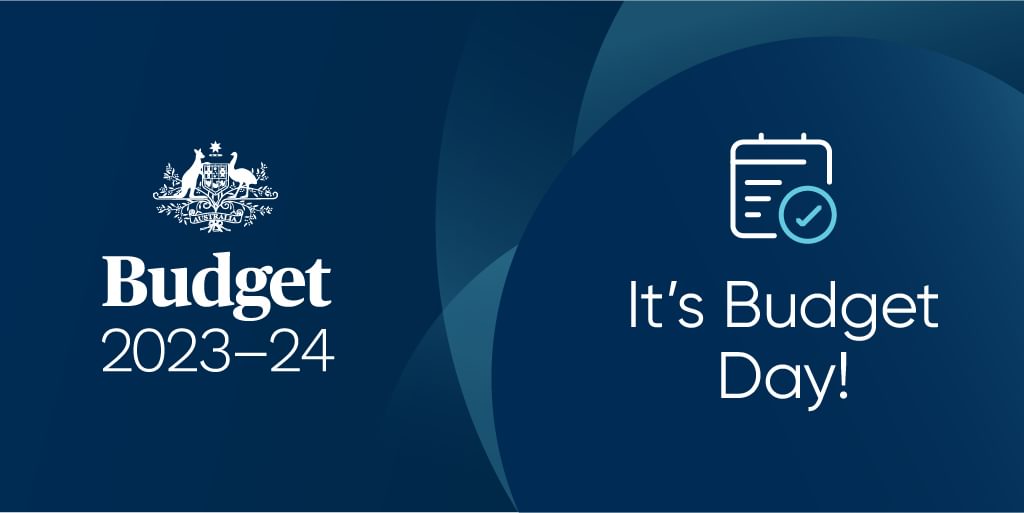End of Financial Year
In a previous article (see here), we discussed the ideal timing for tax planning. It is crucial to regularly assess your business performance and implement strategies that optimise tax outcomes. We recommend conducting a minimum quarterly review of your business to allow ample time for the implementation of growth and tax-related strategies.
If you haven’t yet reviewed your business performance and tax outcomes for this financial year, now is your final opportunity to make a difference before 30 June.
When we engage in end of year tax planning for our clients, we begin by evaluating their year-to-date performance. This analysis provides insights into their projected financial position at year-end and estimates their tax liability for the year.
Outlined below are some key tax planning ideas for 2023, along with upcoming changes that will come into effect on 1 July 2023.
Remember, there is still time to schedule an end-of-year tax planning meeting with us. This will enable us to provide specific advice tailored to your business – click to book in with Jeanette or Troy.
Depreciation of assets
For businesses with a turnover under $50 million, up to 30 June 2023 you can claim a deduction for the acquisition of any eligible depreciating assets (there is no limit for most assets).
For small businesses (turnover under $10 million) that use simplified depreciation rules, the balance of your small business pool can be written off at the end of the income year.
We note that there is still a cost limit on certain assets – for example, you can only claim a maximum deduction of $64,741 for a passenger vehicle during the 2023 financial year. A passenger vehicle is a vehicle that is designed to carry a load less than one tonne and fewer than 9 passengers.
From 1 July 2023, the depreciation limit changes to $20,000 – this means you can only claim a full deduction at time of purchase for assets that cost $20,000 or less. After 1 July 2023, any assets that you acquire for more than $20,000 will need to depreciated for tax purposes.
EOFY Tax tip: If you are looking to acquire capital assets for your business, we recommend doing so prior to 30 June to get the deduction in the current financial year. If the deduction puts your company in a loss position – consider the loss carry-back provisions below.
Business tip: While you get the benefit of deducting the full cost of the asset in the current financial year, this means that you will not receive any depreciation on this asset in future years. It also means that when you sell the asset, any income from the sale will be subject to income tax.
Business tip: The tax depreciation deduction is only available once the asset is installed and ready for use. Getting assets installed and ready for use by 30 June might be difficult for some businesses given the current lack of supply for equipment and vehicles.
Company loss carry-back
Companies that make a loss in the 2020 to 2023 financial years, can carry this loss back to reduce taxable profits made on or after the 2019 financial year. The company can then elect to receive a refund of the tax paid in that year when lodging the later year tax return.
EOFY Tax tip: Your company may be able to take advantage of the asset depreciation rules to write off the full value of new assets purchased. If the depreciation puts your company into a loss, this loss may be applied against the taxable profits from 2019 to 2022. You may then receive a refund of tax paid in those financial years.
Employee super
The June quarter superannuation guarantee liability is required to be paid by 28 July. However, a business can only claim a tax deduction for employees’ superannuation when it is actually paid. As such, to ensure you get a deduction in the current year, you need to pay your employees’ June superannuation guarantee liability prior to 30 June (cashflow permitting). We recommend that the payment be made by 20 June (to ensure it is processed by the recipient superfund).
EOFY Tax tip: Pay your employee June quarter superannuation by 20 June 2023 to get a deduction in the current financial year.
Business tip: The ATO are currently allocating considerable resources to reviewing employer compliance with paying employees’ superannuation guarantee. There are significant penalties that apply if you pay your employee superannuation late.
Business tip: The payment of your June quarter superannuation liability does not impact on your profit and loss position (as the superannuation liability has already been recorded in your profit and loss). The payment before 30 June simply brings the tax deductibility of the payment forward to the current financial year. If you make the payment after 1 July (and before the 28 July cut-off), the payment will be deductible next financial year.
Business tip: From 1 July 2023, the superannuation guarantee rate increases to 11%. This will continue to increase by 0.5% per year until it reaches 12%. This will have flow-on implications for payroll tax, workcover etc.
Personal superannuation
You may also want to make personal contributions to super. For the 2022/23 financial year, the maximum concessional (deducted) contribution cap is $27,500.
However, if your superannuation balance was less than $500,000 as at 30 June 2022, it may also be possible for you to contribute more super by taking advantage of the unused concessional cap carry forward rules.
EOFY Tax tip: If you have unusually high income during the 2023 financial year, consider whether making additional deductible superannuation contributions fits within your personal financial plan. We recommend speaking with your financial adviser with regards to your superannuation contributions.
Trade debtors
You should review your trade debtors as at 30 June. You must ensure that any debts that are uncollectible are written off prior to 30 June in order to claim a tax deduction for the write-off in the current financial year. This is particularly important given the on-going effect of COVID-19 on many businesses.
EOFY Tax tip: To write off a bad debt – you must have made reasonable and commercial attempts to recover the debt and have now determined it is uncollectible. You then need to make a decision in writing to write off the bad debt (eg. you have removed the debt from the customer’s account and have recognised a bad debt expense).
Prepay or bring forward your expenses
Make sure you review all of your expenses and bring forward any expenses to June (where possible). For example, stock up on stationery and office consumables, prepay your insurance and interest (if applicable) and look at any other expenses you may be able to pay in June. By bringing these expenses forward to June, you are obtaining a tax deduction in the current financial year which will reduce your overall tax bill for the 2023 year.
EOFY Tax tip: If your business is in a loss position, it may not be advantageous to bring forward expenses to the current financial year. Please contact us to discuss whether this strategy is appropriate for you.
Defer assessable income
Consider whether it is possible to defer your assessable income (being mindful of cashflow implications) to next financial year.
Motor vehicles
If you are using a vehicle for a high percentage of work-related travel, make sure you keep a logbook. Without a logbook, an individual is limited to claiming a maximum of 5,000km at $0.78 (or $3,900) in the 2023 financial year. If you keep a logbook, you can claim the business percentage of the operating costs of the vehicle (petrol, registration, servicing, depreciation, interest etc).
Logbooks must be kept for 12 continuous weeks and remember to record your vehicle’s opening and closing odometer readings each year.
EOFY Tax tip: A logbook started prior to 30 June can be used to support a logbook claim even if the logbook isn’t completed until after 30 June.
Working from home
If you worked from home during the 2023 financial year, you may be able to claim a deduction for a percentage of the running costs of your home. There are two different methods you can use to calculate your deduction:
(1) Revised Fixed-Rate method ($0.67 per hour) – this method covers electricity, internet, mobile and home phone, stationery and computer consumables. It does not cover depreciation of office equipment. From 1 March 2023, if you are using this method, you need to have a diary of your actual hours worked from home.
(2) Actual cost method – you can calculate and claim the work-related portion of your actual expenses provided you have kept appropriate records.
For more information about your working from home deduction – see our earlier article.
EOFY Tax tip: From 1 March 2023, You must have a diary to record your hours working from home. If you do not have diary evidence, we cannot claim a deduction for these hours.
EOFY Tax tip: The ATO will be specifically reviewing deductions for working from home during the 2023 year. Ensure you have appropriate documentation for your hours and you are not claiming twice, by claiming the rate per hour ($0.67) plus a deduction for your phone for example.
Trust minutes
Prior to 30 June, make sure the trustees of your discretionary trusts decide how they are going to distribute their income and capital. This decision must be documented in a trust minute before 30 June (or as otherwise specified in your trust deed). It is important that you review your trust income for the 2023 financial year to ensure that the trust minute accurately reflects the trustee’s intention. Given the recent announcements from the ATO with regards to the distribution of income to adult children and other tax advantaged beneficiaries, it is important that you get tax advice for your end of year tax minutes.
EOFY Tax tip: Your trust minutes must be prepared prior to 30 June to evidence the trustee’s decision regarding the distribution. Keep this minute with your tax records.
Rental properties
For your rental properties, if you have any expenses coming up in the next few months, try to pay these prior to 30 June – this will bring the deduction into the current tax year and will help you to reduce your 2023 tax bill.
In relation to any interest you are claiming on your rental property, make sure you only claim the interest on the loan that was used to purchase the property. If you have drawn down on the same loan for private purposes (eg. for a holiday), the interest that relates to the private usage is not deductible.
EOFY Tax tip: Consider getting a depreciation report for your rental property. You may be able to claim additional tax deductions for the cost of the building and potential its fixtures and fittings.
EOFY Tax tip: Consider undertaking repairs to your property prior to 30 June.
EOFY Tax tip: Rental property deductions are being specifically reviewed by the ATO during the 2023 year. Make sure your rental expenses are correct and that you have appropriate supporting documentation.
Cryptocurrency
The ATO have specifically announced that they will be reviewing cryptocurrency transactions in the 2023 tax returns. It is important to ensure you include all cryptocurrency transactions on your tax return. If you have had any cryptocurrency gains in the current financial year, you may wish to consider some additional tax planning measures before 30 June to reduce any tax liability.
EOFY Tax tip: Make sure you have all of your documentation available for all cryptocurrency transactions. Noting that changing your investment from one cryptocurrency to another constitutes a transaction which may result in a tax liability.
DISCLAIMER: The information in this article is general in nature and is not a substitute for professional advice. Accordingly, neither TJN Accountants nor any member or employee of TJN Accountants accepts any responsibility for any loss, however caused, as a result of reliance on this general information. We recommend that our formal advice be sought before acting in any of the areas. The article is issued as a helpful guide to clients and for their private information. Therefore, it should be regarded as confidential and not be made available to any person without our consent,

Jeanette has over 20 years experience as an accountant in public practice. She is a Chartered Accountant, registered tax agent and accredited SMSF Association advisor. When she is not helping business owners grow their empires, you will likely find her out running on the trails or at the gym. Book in to see Jeanette today.



